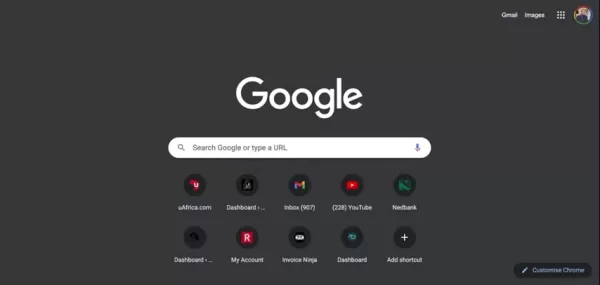Wikipedia Plans AI Integration While Preserving Human Volunteer Roles
The Wikimedia Foundation, steward of Wikipedia, unveiled its ambitious AI roadmap spanning the next three years - with a refreshing commitment to preserving human oversight rather than replacing its vast network of dedicated editors and volunteers.
The nonprofit outlined plans to deploy artificial intelligence strategically as an enabling technology rather than disruptive force. By developing intelligent features designed to streamline workflows, Wikimedia aims to empower contributors by eliminating technical obstacles while preserving editorial discretion.
This human-centric approach directly addresses growing concerns about AI displacing creative roles. Wikipedia's strategy demonstrates how organizations can harness automation ethically - enhancing human capabilities rather than rendering them obsolete.
Focus areas for implementation include:
- Automating repetitive administrative tasks to free editor bandwidth
- Enhancing search capabilities to surface relevant content more effectively
- Developing consensus-building tools that facilitate collaborative decision-making
- Expanding multilingual access through improved translation systems
- Simplifying volunteer onboarding with intelligent training assistants
"Our AI integration reflects Wikimedia's foundational principles," explained Chris Albon (Machine Learning Director) and Leila Zia (Head of Research) in their official announcement. "We remain committed to open-source solutions, transparent operations, and preserving human agency - especially regarding multilingual content integrity."
The initiative comes at a critical juncture as generative AI's limitations become apparent. Wikipedia's vast volunteer-curated knowledge base gains renewed importance amidst concerns about AI hallucinations and fact verification challenges.
Core Implementation Principles
The Foundation outlined key philosophical guidelines shaping its AI adoption:
- Human-Centered Design: Maintaining editorial control at all stages
- Open Ecosystem: Prioritizing transparent, open-source AI models
- Multilingual Nuance: Respecting cultural context in translations
- Progressive Enhancement: Complementing rather than replacing human judgment
Related article
 AI-Powered Guide: How to Create High-Performing Ads Step by Step
In the digital era, crafting high-performing ads is essential for e-commerce businesses to thrive. This comprehensive guide walks you through creating captivating advertisements using AI-powered tools to generate persuasive copy and source engaging v
AI-Powered Guide: How to Create High-Performing Ads Step by Step
In the digital era, crafting high-performing ads is essential for e-commerce businesses to thrive. This comprehensive guide walks you through creating captivating advertisements using AI-powered tools to generate persuasive copy and source engaging v
 Spotify Now Allows Free Users to Choose Songs On-Demand
Spotify Expands Free Tier with On-Demand Song Selection
In a significant policy shift, Spotify has eliminated one of the most frustrating limitations for its free-tier users while simultaneously introducing lossless audio for Premium subscribers. Th
Spotify Now Allows Free Users to Choose Songs On-Demand
Spotify Expands Free Tier with On-Demand Song Selection
In a significant policy shift, Spotify has eliminated one of the most frustrating limitations for its free-tier users while simultaneously introducing lossless audio for Premium subscribers. Th
 YouTube Introduces AI-Powered Search Results Feature Like Google Overviews
YouTube has introduced innovative AI-driven features designed to streamline content discovery, the company revealed this week. The platform debuted a search results carousel enhanced by AI technology, mirroring Google's AI Overviews, while expanding
Comments (0)
0/200
YouTube Introduces AI-Powered Search Results Feature Like Google Overviews
YouTube has introduced innovative AI-driven features designed to streamline content discovery, the company revealed this week. The platform debuted a search results carousel enhanced by AI technology, mirroring Google's AI Overviews, while expanding
Comments (0)
0/200
The Wikimedia Foundation, steward of Wikipedia, unveiled its ambitious AI roadmap spanning the next three years - with a refreshing commitment to preserving human oversight rather than replacing its vast network of dedicated editors and volunteers.
The nonprofit outlined plans to deploy artificial intelligence strategically as an enabling technology rather than disruptive force. By developing intelligent features designed to streamline workflows, Wikimedia aims to empower contributors by eliminating technical obstacles while preserving editorial discretion.
This human-centric approach directly addresses growing concerns about AI displacing creative roles. Wikipedia's strategy demonstrates how organizations can harness automation ethically - enhancing human capabilities rather than rendering them obsolete.
Focus areas for implementation include:
- Automating repetitive administrative tasks to free editor bandwidth
- Enhancing search capabilities to surface relevant content more effectively
- Developing consensus-building tools that facilitate collaborative decision-making
- Expanding multilingual access through improved translation systems
- Simplifying volunteer onboarding with intelligent training assistants
"Our AI integration reflects Wikimedia's foundational principles," explained Chris Albon (Machine Learning Director) and Leila Zia (Head of Research) in their official announcement. "We remain committed to open-source solutions, transparent operations, and preserving human agency - especially regarding multilingual content integrity."
The initiative comes at a critical juncture as generative AI's limitations become apparent. Wikipedia's vast volunteer-curated knowledge base gains renewed importance amidst concerns about AI hallucinations and fact verification challenges.
Core Implementation Principles
The Foundation outlined key philosophical guidelines shaping its AI adoption:
- Human-Centered Design: Maintaining editorial control at all stages
- Open Ecosystem: Prioritizing transparent, open-source AI models
- Multilingual Nuance: Respecting cultural context in translations
- Progressive Enhancement: Complementing rather than replacing human judgment
 AI-Powered Guide: How to Create High-Performing Ads Step by Step
In the digital era, crafting high-performing ads is essential for e-commerce businesses to thrive. This comprehensive guide walks you through creating captivating advertisements using AI-powered tools to generate persuasive copy and source engaging v
AI-Powered Guide: How to Create High-Performing Ads Step by Step
In the digital era, crafting high-performing ads is essential for e-commerce businesses to thrive. This comprehensive guide walks you through creating captivating advertisements using AI-powered tools to generate persuasive copy and source engaging v
 Spotify Now Allows Free Users to Choose Songs On-Demand
Spotify Expands Free Tier with On-Demand Song Selection
In a significant policy shift, Spotify has eliminated one of the most frustrating limitations for its free-tier users while simultaneously introducing lossless audio for Premium subscribers. Th
Spotify Now Allows Free Users to Choose Songs On-Demand
Spotify Expands Free Tier with On-Demand Song Selection
In a significant policy shift, Spotify has eliminated one of the most frustrating limitations for its free-tier users while simultaneously introducing lossless audio for Premium subscribers. Th
 YouTube Introduces AI-Powered Search Results Feature Like Google Overviews
YouTube has introduced innovative AI-driven features designed to streamline content discovery, the company revealed this week. The platform debuted a search results carousel enhanced by AI technology, mirroring Google's AI Overviews, while expanding
YouTube Introduces AI-Powered Search Results Feature Like Google Overviews
YouTube has introduced innovative AI-driven features designed to streamline content discovery, the company revealed this week. The platform debuted a search results carousel enhanced by AI technology, mirroring Google's AI Overviews, while expanding





























